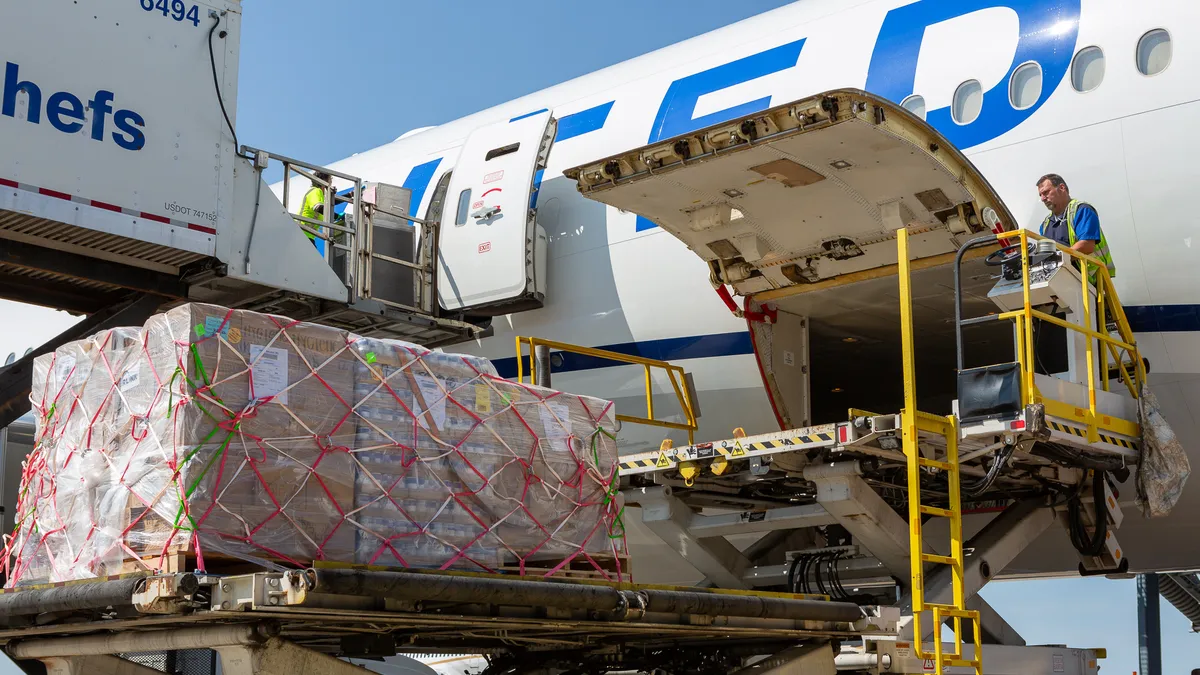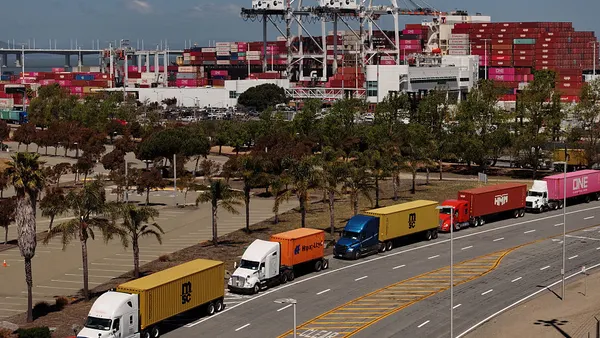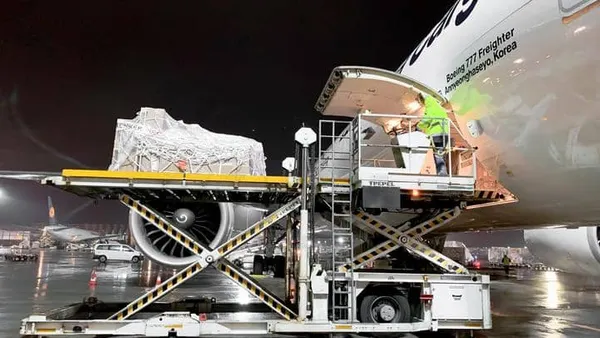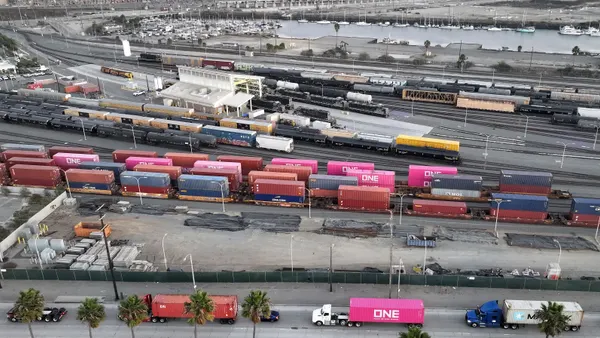Mexico President Claudia Sheinbaum’s actions to crack down on duty-free apparel imports last month have left some U.S. e-commerce apparel retailers in a lurch, according to logistics experts.
The moves, which were signed into effect by a Dec. 19 presidential decree, include applying additional 15% or 35% tariffs on certain apparel categories. Many apparel goods are also excluded from qualifying for the country’s IMMEX program, which allows for duty-free imports of intermediary goods.
The news created a “nightmare scenario” for 3PLs that service cross-border shipments from Mexico, Flexport CEO Ryan Petersen said in a series of posts on X. As many apparel brands seek out new logistics solutions, their fulfillment providers are now “scrambling to get the government to not destroy their business.”
Petersen explained the IMMEX program is critical to enabling low-cost cross-border operations. Apparel brands would use the program to import goods to Mexico duty-free, then exported those goods to the U.S. using de minimis provisions, allowing them to save significant costs on tariffs.
At least 30 of the top 100 American brands on Shopify now fulfill from just across the Mexican border, mostly in Tijuana, to avoid US customs duties. From there the goods are handed off to UPS, FedEx, USPS or other last mile networks for final delivery to American households.
— Ryan Petersen (@typesfast) December 24, 2024
Similarly, ShipHero founder and CEO Aaron Rubin, in a video posted on X, called it a major disruption for many large e-commerce companies, which must now “find how to re-do their distribution in the new reality.”
“Those tariffs are so much that there’s no point in going through Mexico anymore,” Rubin said. “It pays to use either a Canadian 3PL which still has the ability to do 321 and pay no tariffs, or just a U.S. 3PL and just pay the U.S. tariffs — you’ll still get faster shipment and probably cheaper overall cost than going through Mexico.”
Mexico’s top officials justified the actions as a way to protect the country’s apparel manufacturing industry, saying in a Dec. 19 news conference the crackdown comes as a result of companies abusing existing trade rules.
Marcelo Ebrard, Mexico’s Economy Secretary, said the IMMEX program was designed for intermediary goods — products that are imported for use in manufacturing a different finished good — that will be exported back out. However, he said some companies were abusing the program by claiming IMMEX status, then selling directly into Mexico.
“Why should a Mexican company be at a disadvantage against whoever is importing a finished product? This is a door we are going to close,” Ebrard said in Spanish during the news conference.
Correction: A few words were inadvertently omitted from Rubin's quotes in a previous version of this story. The quote has been updated to include them.














